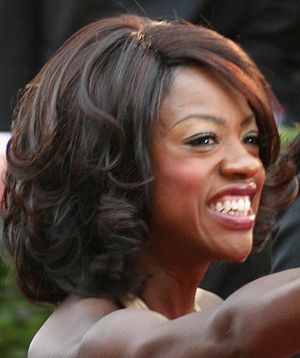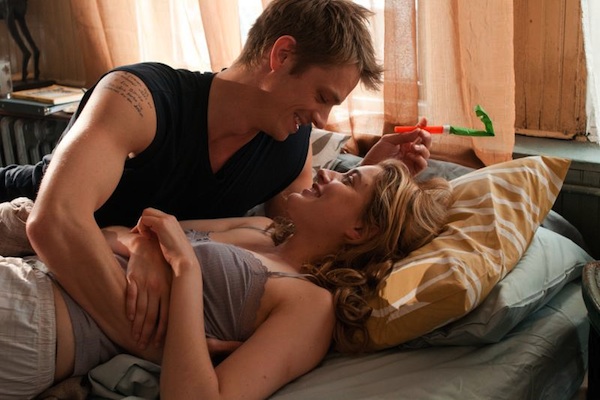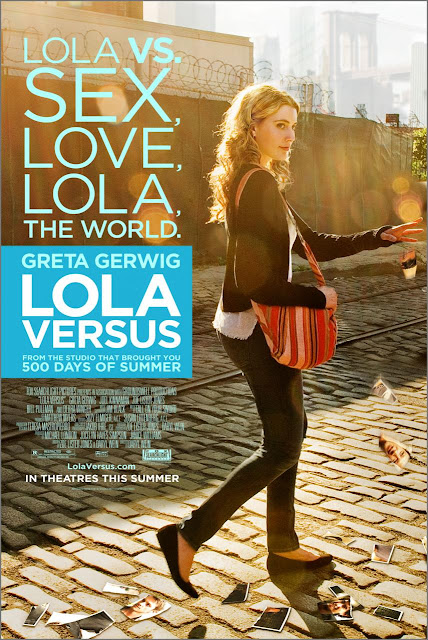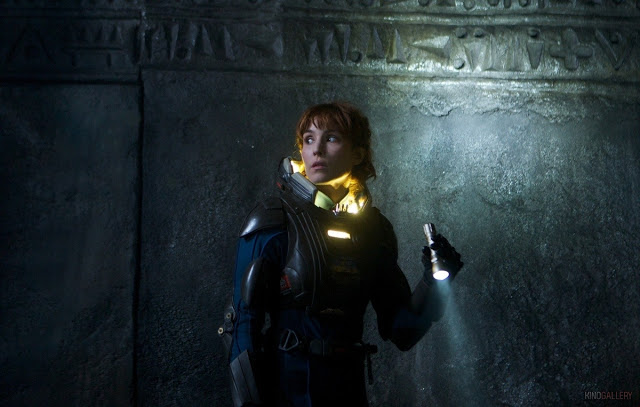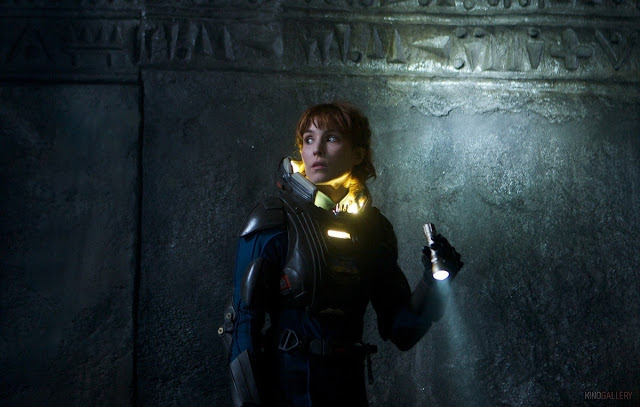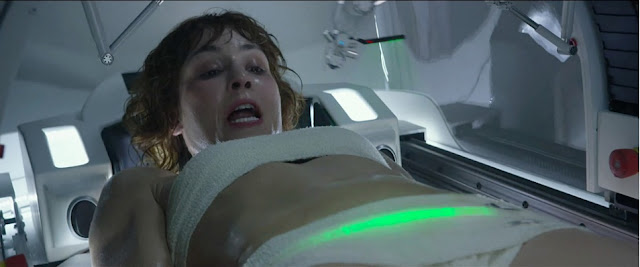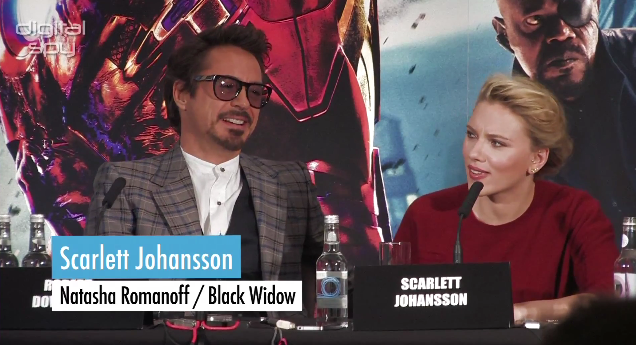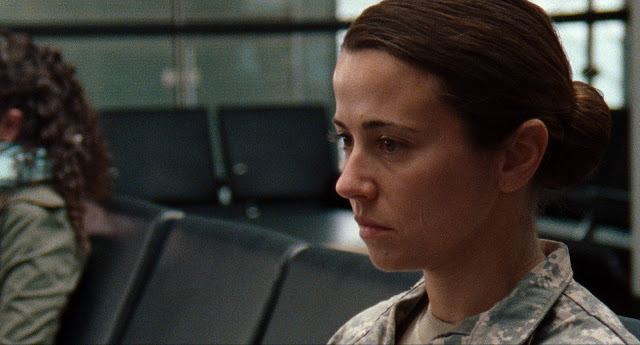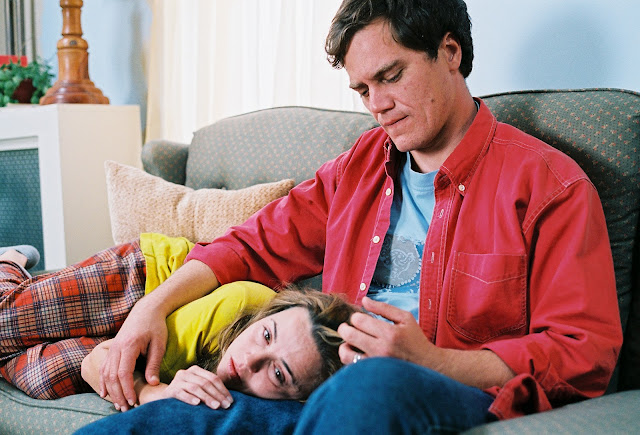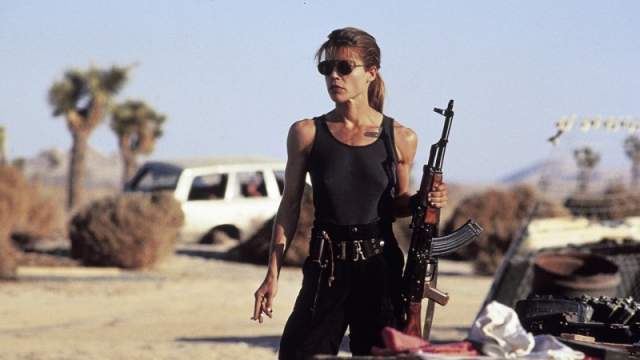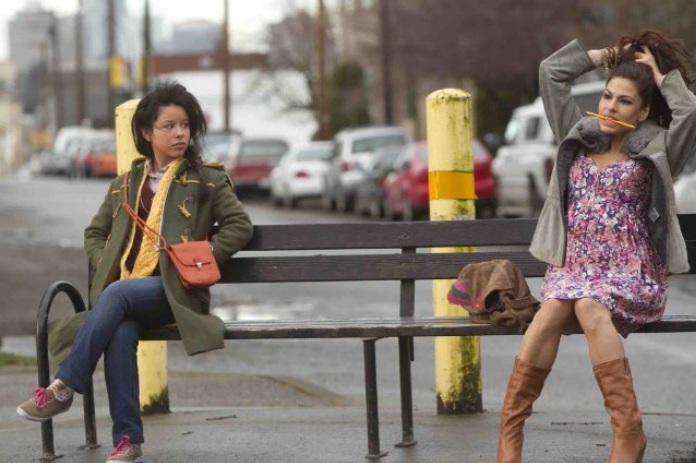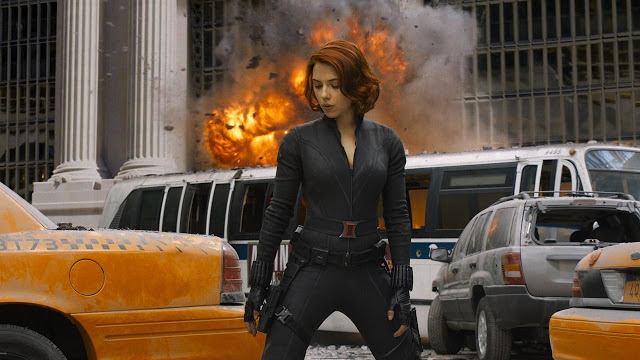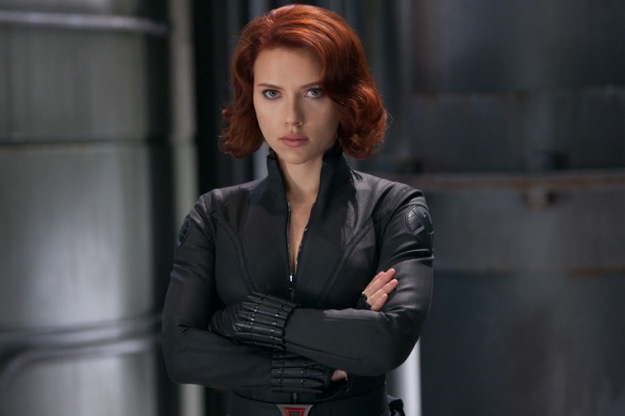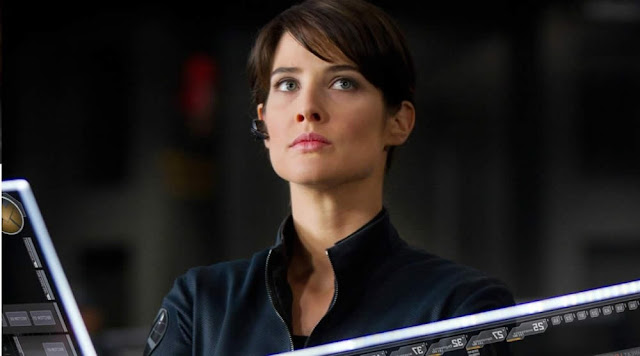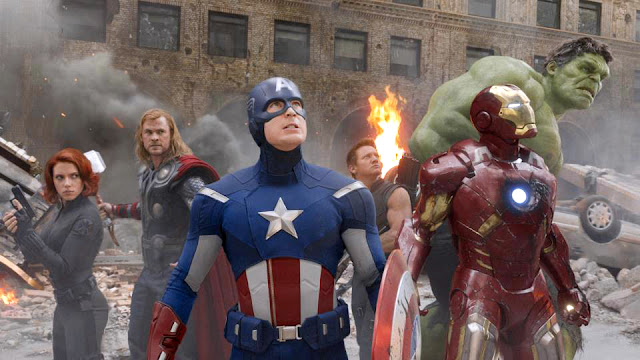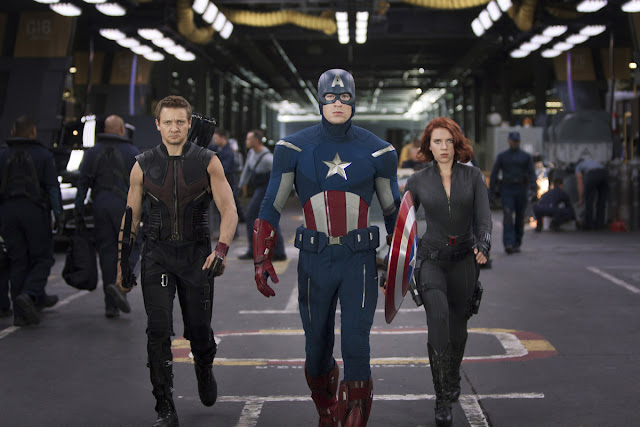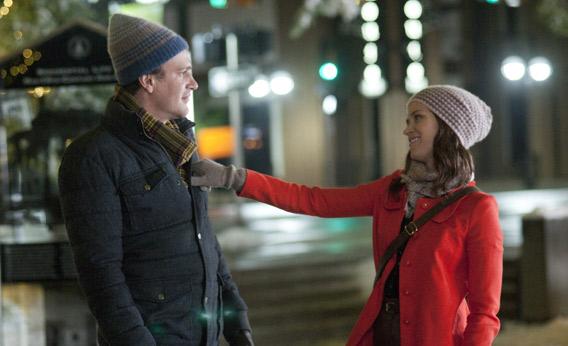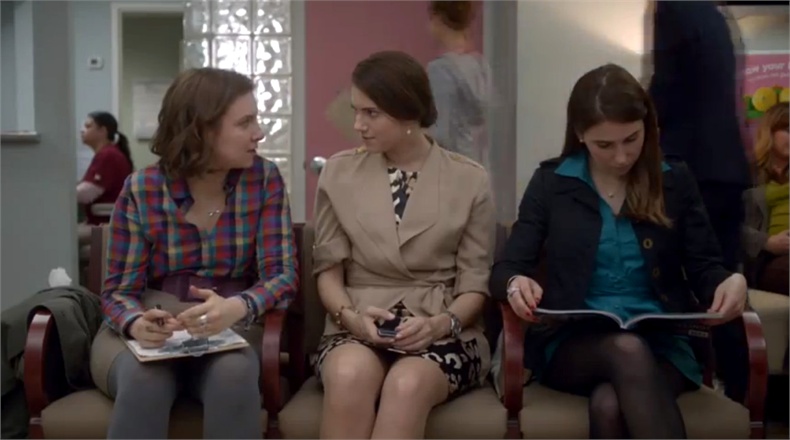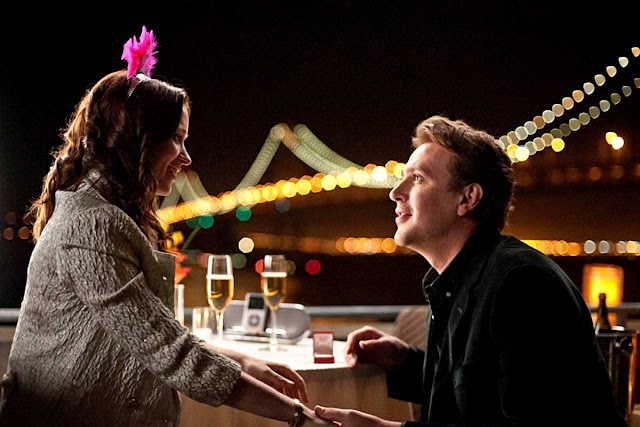 |
| Violet (Emily Blunt) and Tom (Jason Segal) |
I’ve never planned a wedding and I’ve never been engaged. Yet I can relate to the The Five-Year Engagement’s premise. My dream is to move to NYC and become a writer. While my partner is incredibly supportive of me, he loathes NYC and has a life in Boston. So what do two people do when their careers take them in two opposite directions? Who yields? Who compromises? That’s what the romantic comedy The Five-Year Engagement explores.
Violet (the AMAZING Emily Blunt), a psychology PhD grad, and Tom (Jason Segal, who I will forever think of as HIMYM’s adorbs Marshall), a sous chef in an upscale restaurant, are madly in love. They get engaged and begin to plan their wedding with comedic results. When Violet gets a fellowship in another state, trials and tribulations strain and challenge their bond.
I was uber excited to see it. I mean, a film with Emily Blunt, Jason Segal, Alison Brie, Chris Pratt AND Mindy Kaling?? I’m in! Blunt and Segal, who are friends in real-life, have an easy rapport and an effortless chemistry. The movie shines when it focused on wedding preparations: San Francisco vs. London for the wedding locale, religion in the wedding, including Tom’s “Jewish drawer.” While the beginning and ending were cute, albeit predictable, the movie dragged on. But what bothered me most was the subtly anti-feminist message.
When Violet is awarded a fellowship in Michigan (and they both live in San Francisco), Tom is incredibly supportive of Violet. He tells her that it’s her dream so of course they’ll move to Michigan. And it’s only for 2 years. No biggie. Until the 2 years turns semi-permanent when funding for Violet’s post-doc is extended. Then Tom tells her that he hates Michigan (totally understandable…I hate a lot of places too). Then things unravel quickly.
Violet tells Tom she doesn’t want to give up her career and resent him like her mother did when she quit her career after she married her father. Later, when Violet confronts Tom about his disappointment in his career, Tom tells her, “Men and women are different. We don’t sit around and discuss our feelings!” Oh I’m sorry, was someone quoting the book, that fount of wisdom, Men Are From Mars, Women From Venus??? Tom then tells Violet that as the man he should be supporting her. Kill. Me. Now.
“A lot of people say, ‘Why would Tom move across country and give up his job so she can pursue her dreams?’ but you would never in a million years ask that question if the roles were reversed. I think it’s actually quite sexist to even ask that question. It’s what we would expect a woman to do for her husband, so why wouldn’t we expect a husband to do it for his wife?”
Wait, he declares something sexist?? Swoon! And he’s absolutely right. Not only do people expect women to follow the men in their lives for their careers, film and TV shows often reflect that too. But Violet, an intelligent, hard-working academic couldn’t have critiqued his retro machismo? She couldn’t have called out his bullshit? Really?? Not buying it.
And don’t even get me started on the fucking hunting scenes. Tom befriends a hunter (Chris Parnell) and starts hunting too. Did we really need a “gag” about an innocent dead deer falling off the roof of the car so he then has to stick the deer in the passenger seat with its head going out the sun roof?? Spare me. Is the hunting supposed to be some kind of reinforcing of Tom’s masculinity? Especially since his fiance’s career is taking off more than his because he chose to follow her to Michigan for her career? Is supporting the woman you love follow her dream really supposed to be emasculating??
Near the beginning of the movie, in a toast at their engagement party, Violet’s sister Suzie (Alison Brie) says she doesn’t “believe in marriage or kids.” But after seeing how perfect Violet and Tom are for each other, she “understands the whole institution.” SPOILER!!! -> As soon as Suzie gets pregnant after a drunken one-night stand with Tom’s best friend Alex (Chris Pratt), she marries Alex, a guy who seems to repulse her and who she barely knows. They have the baby, nary a discussion of abortion or adoption.
A shot-gun wedding, really? Did we take a time warp back to 1942?? That’s right, all women really want to get married and have babies! And the fact that Suzie JUST said that that she didn’t want to get married or have kids; she’s not even going to think about abortion for one moment?? <-END SPOILER Thanks, Hollywood for erasing women’s reproductive choices.
Hands down the funniest scenes is when Violet and Suzie talk in Cookie Monster and Elmo voices (ADORBS!!), asked to talk in Sesame Street character voices by Suzie’s daughter. For one brief moment, Suzie admits that she gave up her career as a kinesiologist and now cleans up poop. Women talking to each other about sacrificing their goals? Yes! But that’s it. That’s as far as it goes. No rousing pep talk by her sister, no advice about following her dreams. Even this brief exchange subtly reinforces the notion that women’s careers shouldn’t matter nearly as much as men’s aspirations.
Hollywood notoriously erases female friendships. Violet never really spends time with female friends. Really? She doesn’t have any close female friends besides her sister? Tom has his best friend Chris Pratt. While they do talk about Violet, they also make jokes and talk about their careers. Yes, Mindy Kaling is Violet’s post-doc friend Vanetha and the two briefly (so briefly, you’ll miss it if you blink) talk about psychological experiments. And yes, we see Violet and her sister talk too…almost exclusively about weddings and men. That’s right, ladies…our lives revolve around men.
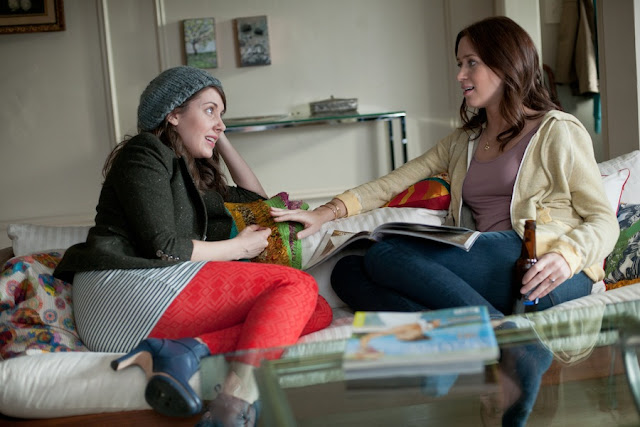 |
| Sisters Suzie (Alison Brie) and Violet (Emily Blunt) |
Speaking of revolving around men…when SPOILER!!! -> Violet’s professor kisses her in a bar, she tells Tom a few weeks later. Infuriated, Tom tells Violet that she must have done something that made him think it was okay to kiss her. Can we say rape apologism?? Now, I know what you’re probably thinking. You’re thinking how the hell did she jump from a kiss to rape?! But hear me out. It’s the same victim-blaming logic that tells women that their behavior brings rape, sexual assault, domestic violence, street harassment on themselves. <- END SPOILER Rather than questioning the doucheiness of the professor, Tom immediately blames Violet’s behavior.
Lest you think we’ve evolved passed all this machismo bullshit, the professor reminds Tom (and the audience) that we’re all just “cave men acting on impulse” when he justifies kissing Violet. To top it off, SPOILER!! -> Violet’s academic career is completely undermined when we learn that not only was she chosen to become a faculty member over another candidate because she was dating the professor, but he never would have even entertained her psychological experiment had another post-doc student suggested it. <- END SPOILER
I liked that The Five Year Engagement didn’t fall prey to many of the usual rom-com clichés and stereotypes. I liked that Violet was never demonized or portrayed as villainous for pursuing her career (nor should she be). I empathized with both Violet and Tom because I could relate to both sides. The movie shows how easily relationships can unravel and how there is no perfect moment to get married. I really appreciated the film’s message that a perfect fairytale ending is just that: a fairytale. But…
SPOILER!!!-> While I loved, loved, loved that Violet re-proposes to Tom, <-END SPOILER the ending seems to undo the overarching anti-fairytale theme. Violet and Tom don’t resolve or even discuss their problems. They don’t address the breakdown of trust. We don’t know where they will live or if they agree on having or not having children. But it doesn’t matter…love conquers all! Is it really so cynical to think that sometimes love just isn’t enough?
“It is certainly possible to raise a feminist eyebrow at the way The Five-Year Engagement ultimately answers this question, which is to say with a timid and slightly cynical traditionalism…”
I expected a hilarious skewering of wedding rituals and traditions a la Bridesmaids. Yes, funny moments are sprinkled throughout the movie. And clearly Segal recognizes sexism. But that’s not the sense I got after leaving the theatre. Instead, the movie bore the implication that feminism strains relationships.
Now, it’s easy to dismiss romantic comedies as they’re fun, sentimental and not overly serious. I mean this is just a silly wedding movie, right?? But as the fabulous
Chloe Angyal wrote at Jezebel, “they are powerful pieces of popular culture:”
“Rom coms furnish us with ideas and expectations about some of the most important things in life: love, work, friendship, sex, gender roles. And some of those ideas are worryingly sexist and regressive.”
The Five-Year Engagement raised incredibly valid questions regarding gender, career, expectations, goals and sacrifice. But it never answers them or even provides commentary critiquing sexism. Instead it ends up inadvertently reinforcing sexist stereotypes. Over and over again, we’re told men are cave men hunters and women shouldn’t give up their careers. Oh wait…no, they should or their relationships will be fucked up.
Relationships are hard. Unpacking and dismantling gender stereotypes is incredibly hard too. But The Five-Year Engagement doesn’t indict patriarchy. Sadly, while it attempts to explore gender role reversal, it ends up condemning enlightened men and empowered women.

